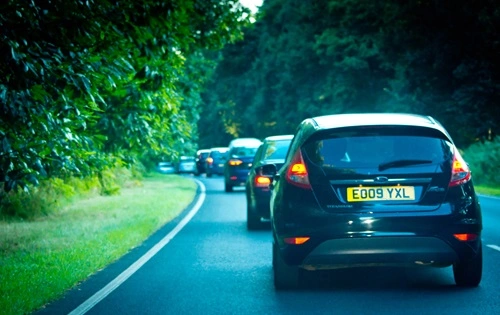Yes, driving with one brake light out is illegal in most states across the United States. Operating a vehicle without fully functional brake lights compromises road safety and can lead to legal penalties.
Legal Requirements for Brake Lights
Federal regulations mandate that all vehicles manufactured after 1986 be equipped with three brake lights: two on either side at the rear and a central high-mounted stop lamp (commonly known as the third brake light). These lights must be operational to ensure that drivers behind you are adequately informed when you apply the brakes. Non-functional brake lights can result in traffic violations and fines.
Safety Implications
Brake lights are crucial for preventing rear-end collisions by signaling to other drivers that your vehicle is slowing down or stopping. A malfunctioning brake light reduces visibility and can lead to accidents, especially in low-visibility conditions or heavy traffic. Ensuring all brake lights are operational is vital for road safety.
Penalties for Non-Compliance
Driving with a defective brake light can result in:
- Traffic Citations: Law enforcement officers may issue tickets for faulty brake lights, with fines varying by state. For example, fines can range from $20 to $200, depending on the jurisdiction.
- Vehicle Inspection Failures: In states requiring regular vehicle inspections, a non-functional brake light can cause your vehicle to fail, necessitating repairs and re-inspection.
- Increased Liability: In the event of an accident, having a faulty brake light can be considered negligence, potentially leading to higher liability in legal proceedings.
Steps to Address a Faulty Brake Light
- Regular Inspections: Periodically check all brake lights to ensure they are functioning correctly.
- Prompt Repairs: If a brake light is out, replace the bulb or consult a mechanic to fix the issue immediately.
- Stay Informed: Be aware of your state’s vehicle equipment regulations to maintain compliance.
Related FAQs
Q. Is it illegal to drive with a broken brake light cover?
Ans: Yes, a broken cover can diminish the light’s visibility, leading to potential traffic violations.
Q. Can I use LED brake lights as replacements?
Ans: Yes, provided they meet your state’s specifications and are properly installed.
Q. Are there exceptions for older vehicles?
Ans: Vehicles manufactured before 1986 may not be required to have a third brake light, but all original brake lights must be functional.
Q. How can I check if my brake lights are working?
Ans: Have someone observe the lights as you apply the brakes, or use reflective surfaces to check their illumination.
Q. What should I do if I receive a ticket for a faulty brake light?
Ans: Address the malfunction promptly and provide proof of repair to the relevant authorities, which may help in reducing fines or dismissing the ticket.


